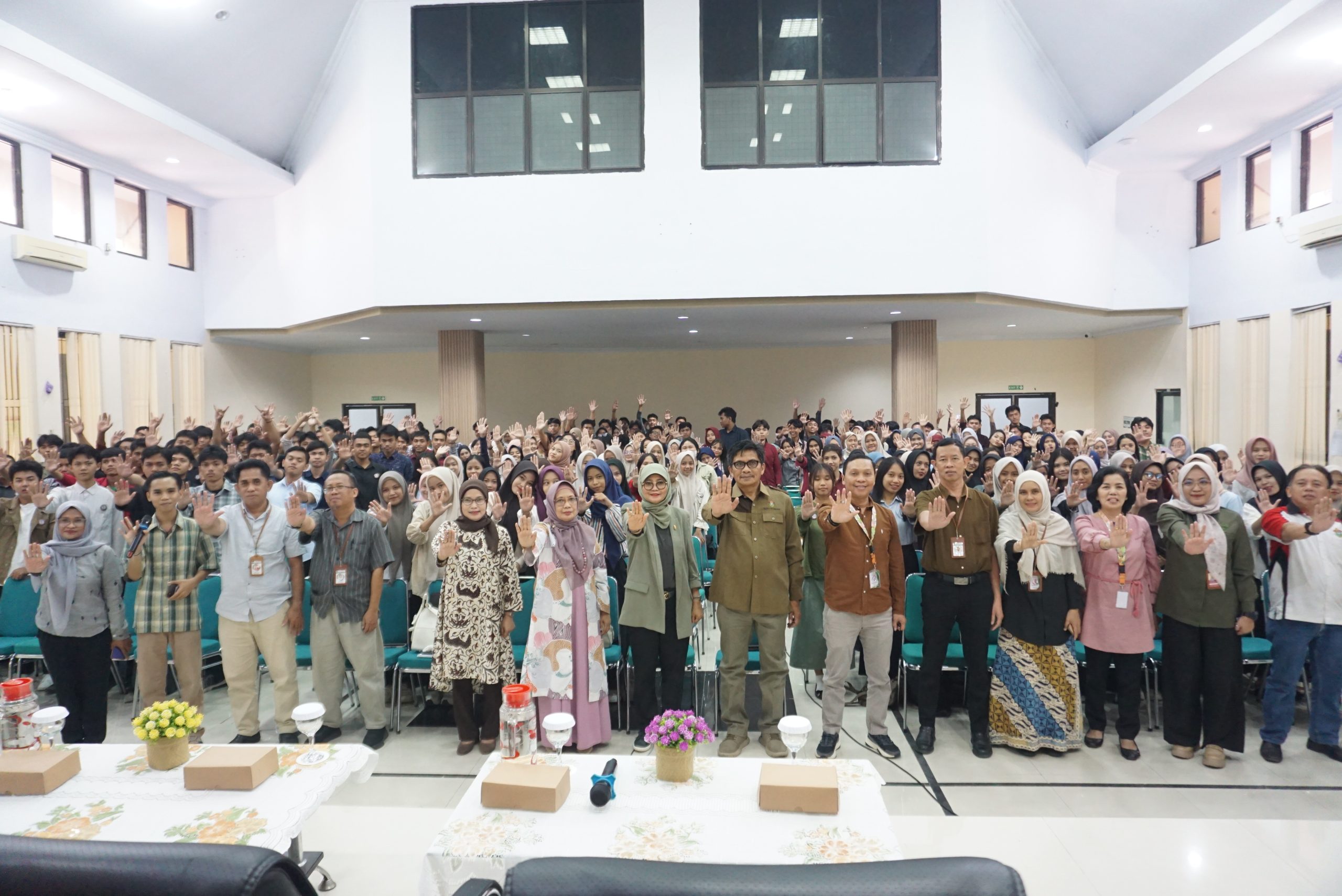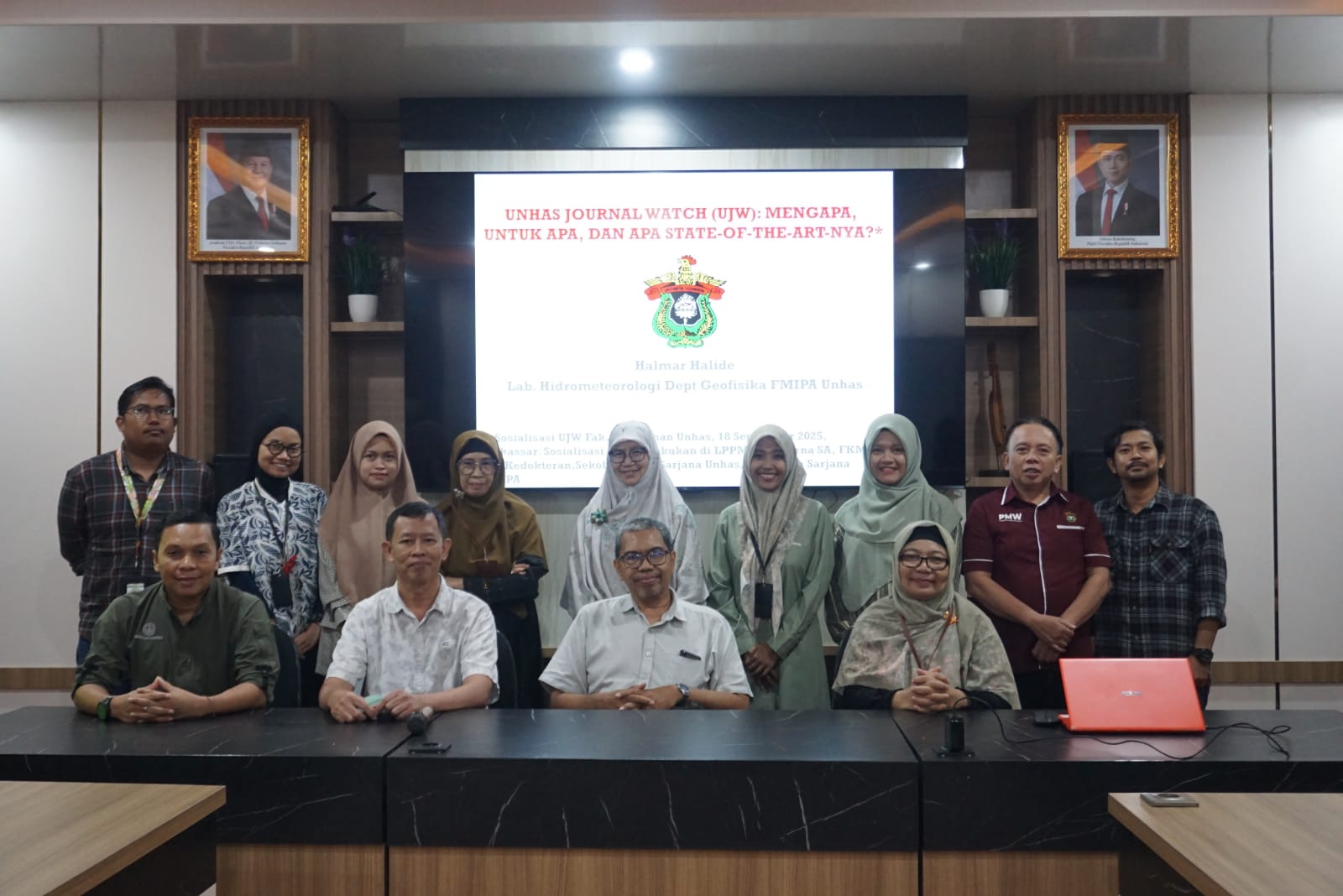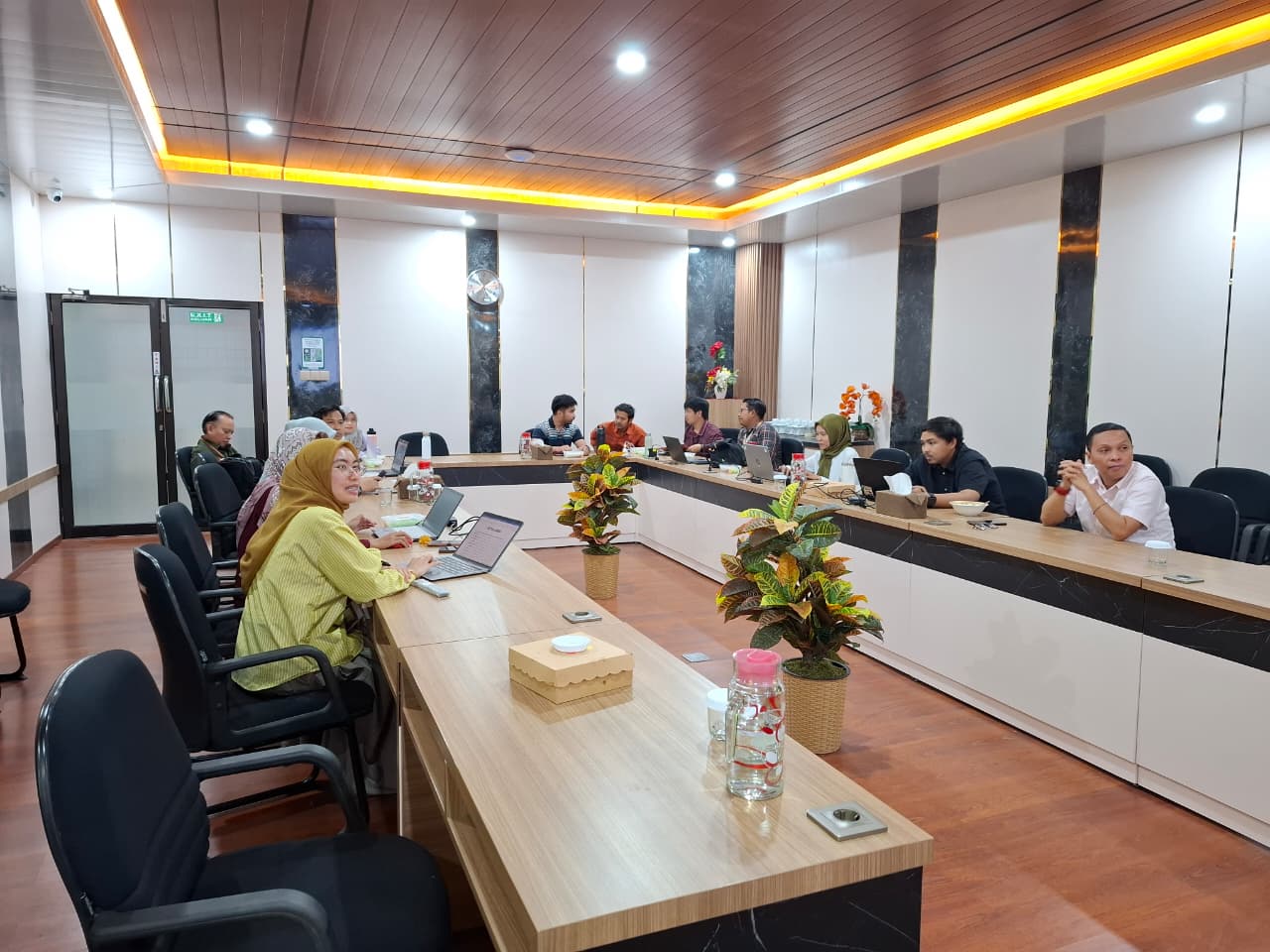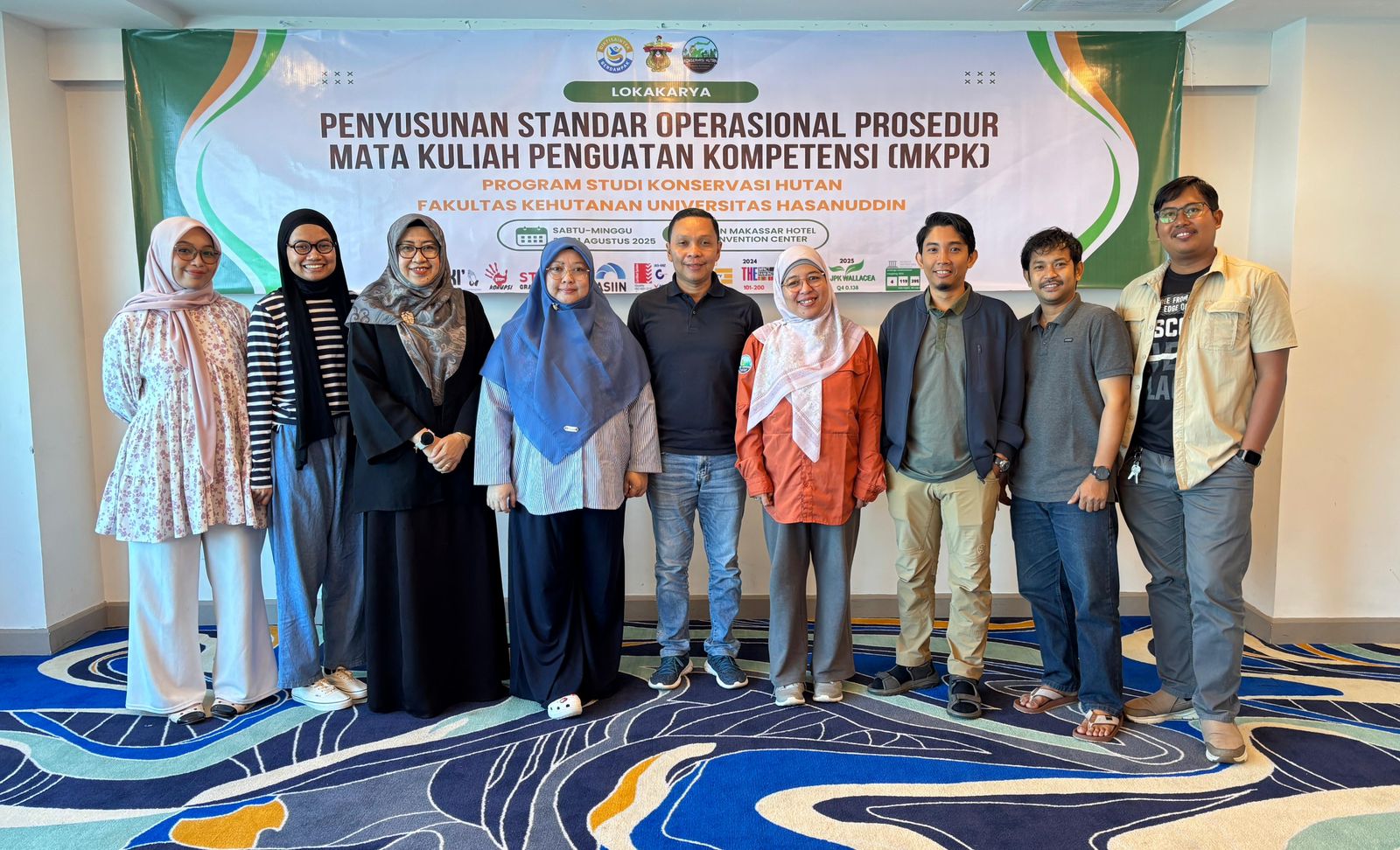Tamalanrea-Makassar. The Chancellor of Hasanuddin University, Prof. Dr. Ir. Jamaluddin Jompa, M.Sc., received an academic visit from students and lecturers from the University of Hawai’i at Manoa, to introduce an international collaborative program conducted with the Forest and Society Research Group (FSRG) of the Faculty of Forestry, Hasanuddin University. The visit took place at 8:00 a.m. WITA, in the Chancellor’s Room, 8th Floor of the Rectorate Building, Hasanuddin University Tamalanrea Campus, Makassar, Friday (18/07).
Also accompanying the delegation were the Dean of the Faculty of Forestry, Hasanuddin University, Prof. Dr. Ir. A. Mujetahid M, S.Hut., MP., Head of the Forest and Society Research Group (FSRG), Prof. Dr. Forest. Muhammad Alif KS., S.Hut., M.Sc., lecturers and students from the University of Hawaii at Manoa.
On that occasion, Prof. Alif explained and introduced an international collaborative program carried out with the University of Hawaii at Manoa entitled “Sulawesi Joint Field School 2025: A Collaborative Field School Exploring Landscapes and Livelihoods, in and around Bantimurung-Bulusaraung National Park”.
He explained that this program is a strategic initiative to strengthen cross-border academic collaboration, emphasizing the importance of field learning in the context of environmental and social sustainability. The field school is designed to bring together students and faculty from both institutions to share knowledge and experiences, as well as foster cultural exchange and international networks.
“A total of 15 participants from Hawaii and 13 from Hasanuddin University are scheduled to participate in this activity, which will take place in the Bantimurung-Bulusaraung National Park area. We hope that this event will not only expand global partnerships but also serve as a platform to introduce local potential to international academics,” explained Prof. Alif.
On the same occasion, Prof. Mujetahid, Dean of the Faculty of Forestry, added that the Sulawesi Joint Field School program would serve as a learning space and provide new cross-cultural experiences for participants. He stated that through collaborative activities like this, FHut Unhas aims to create a cross-cultural learning space rich in local context yet globally oriented.
In response, Rector Prof. JJ expressed his appreciation and satisfaction for the Faculty of Forestry’s ongoing efforts to enhance global partnerships. He also welcomed this initiative and emphasized that such collaboration is highly relevant in the context of interconnected global education.
“Unhas consistently encourages multidisciplinary international collaboration with real impact. This also serves as an important platform for enriching the experiences of our students. Hopefully, this type of collaboration can be developed in other fields,” explained Prof. JJ.
Furthermore, Prof. JJ added, this activity also serves as an opportunity to strengthen strategic cooperation between Unhas and global partners, not only limited to the implementation of academic activities, but also collaborative research.
In this meeting, in addition to explaining the field school program, the Faculty of Forestry also conveyed the plan to host the international conference “International Association for the Study of the Commons (IASC) Biennial Conference 2027” with the theme “Commons and Crises: Past, Present, and Future Collective Action.”
This international conference is scheduled to be held at Hasanuddin University from June 21 to 25, 2027. It is expected that more than 500 academics, researchers, and practitioners from various countries will attend to present and discuss research findings and best practices on commons resource management, from historical, contemporary, and future perspectives.
The audience closed with a discussion session for other collaborative expansion plans, as a commitment to continue academic synergy in the long term.






